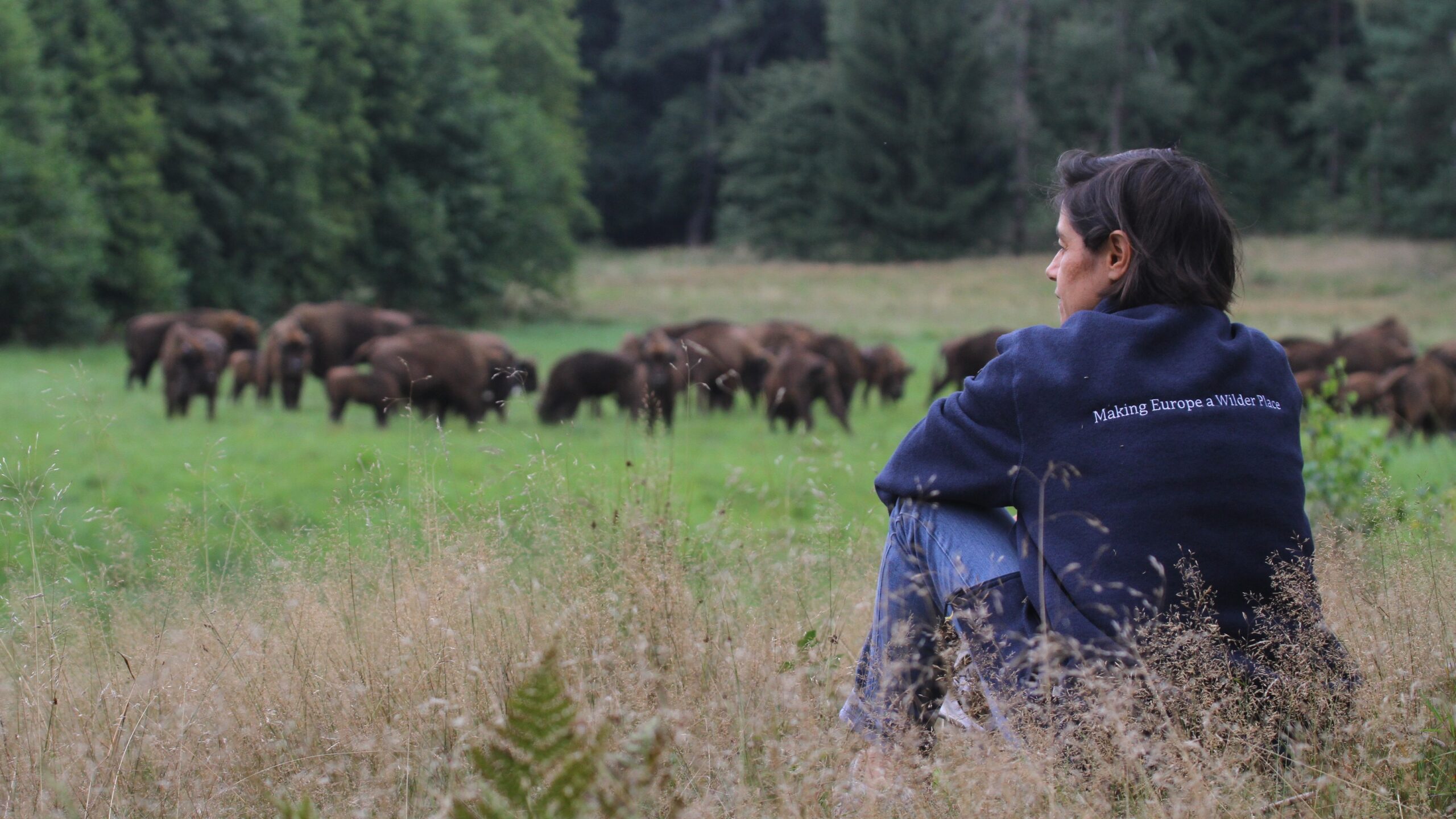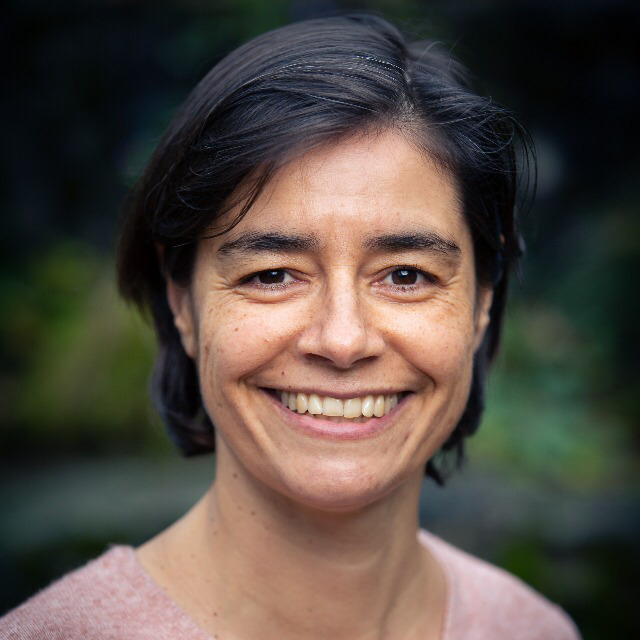Raquel Filgueiras is Portuguese and has been a member of the Rewilding Europe team since 2019. In this interview, we get to know better her journey in the rewilding movement and her vision of rewilding in Portugal and in the Greater Côa Valley, as well as European strategies for the future.

What do you think sets rewilding apart from other nature conservation approaches?
For me, what sets rewilding apart from other more traditional conservation approaches is that rewilding focuses on the restauration of our planet and on bringing back the natural processes that makes this planet functional. Is also an approach to restoration where we accept that first, we don’t know everything, and second, we trust that nature can take care of itself. Rewilding means letting the natural systems decide what happens in the landscapes.
It is about letting go of control, and of thinking that we know what should be in a certain landscape and accepting that we are in the XXI century and what is here now might not be the same thing that was here a few thousand years ago or even a few hundred years ago. We cannot recreate the past, but we can take elements and signs and guide our presence and approach by what was here before.
More than speaking about species, it is important to focus on the natural processes and bringing them back, such as trophic chains, flooding regimes, fire regimes etc. Even when we say that we have to let nature decide, it is necessary to make some interventions and we base them in kicking-off and helping these processes to happen, for example seeing what species are missing in a landscape and respective functions and their importance to complete the trophic chain and reintroducing them if needed.
Scale is also very important in rewilding, and not just scale in terms of space, but also in terms of diversity and the amount of biomass that exists on a certain landscape. When we think about rewilding we think immediately about an entire landscape, and we want to see more nature as a whole.
We also see people as part of this landscape, recognizing our presence and our influence in the landscape, finding ways to make coexistence possible and for people to prosper in natural landscapes, mitigating conflicts that may arise and creating benefits in the landscape for the communities.
Rewilding Europe recently published its 2030 strategy – what would you like to highlight from that strategy, or what do you think is most interesting for the Portuguese context?
First of all, this strategy is a clear path of what we want to achieve, but this is a 10-year strategy, and 10 years is a very small amount of time, because when we think about rewilding we think about a large scale both in terms of space and time. It is an ambitious strategy but realistic and that can be effectively achieved.
As part of this strategy, Rewilding Europe wants to have 500.000 hectares under rewilding practises and support others to rewild their own land in another 250.000 hectares. In Portugal, we have to find a way of doing that, because even if people don’t want to give away their land ownership, they can still be the owners of their land but coming together with their neighbours and rewilding their lands together would be a great achievement and we are here to help.
Portugal has been facing a growing exodus from the rural countryside to the cities, with the countryside having an increasingly smaller and older population, which reduces the agricultural pressure in the land or overgrazing from sheep and other domestic animals, making it possible for nature to recover by itself. That provides a very good opportunity of gaining scale and we can help with the management.
Marine rewilding will also be a very good opportunity to Portugal, because here we have amazing marine areas that are needing attention and that’s another area of growth for us in Portugal. I hope forward for Portugal to come with interesting proposals in this topic too.
As a Portuguese what is your opinion about how nature conservation is currently carried out in Portugal, and how can rewilding be an opportunity to scale up restoration efforts in the country?
I did my degree in Portugal, but my experience working in the Portuguese territory is quite small, I only worked in Castro Verde. Since then, I never worked in Portugal. I worked in Guinea-Bissau, in the Caribbean and other places in Africa. So, giving an opinion about the Portuguese reality about nature conservation is not easy. But from what I have seen, Portugal has not woken up enough to the opportunity that restoration brings to the country.
Our continent and all the economic systems are waking up to these needs and creating financial ways to help on this and to support new initiatives and Portugal is losing out on most of these opportunities.
Other countries are taking them, for example in the carbon markets or with companies aware that they need to do more than their corporate agenda and invest in restoring habitats and lands on which they are dependent. I also noticed that conservation is too much only in the hands of non-profit organizations. But the input of the government is still lacking, and it is very important. NGOs cannot do it all by themselves, they need help from the entities responsible for nature and environment in Portugal.

From a personal perspective and reflecting on 2021, what would you like to see happen in 2022?
I would like to see people using the beautiful landscapes that we have in Europe and get out of the houses and cities and go and experience, smell and feel the landscapes that we have next to where we live. We forget how beautiful this continent is…
We tend to stay at home, Covid-19 was responsible for part of that, but it was happening also before. The whole point for me in doing conservation my whole life, of course it is based also in the fact of loving nature myself but also in recognizing that nature increases the quality of life in the time we have on this planet. So yes, I would like to see a lot more people including nature in their life one way or the other.